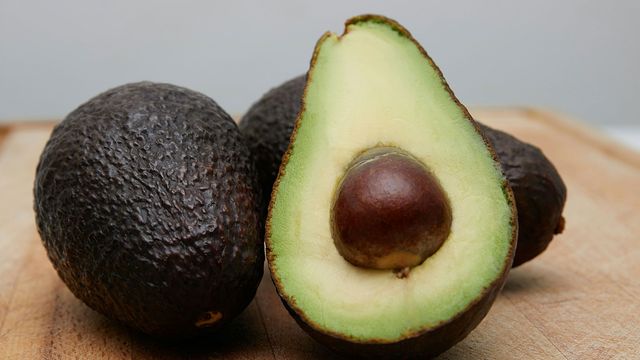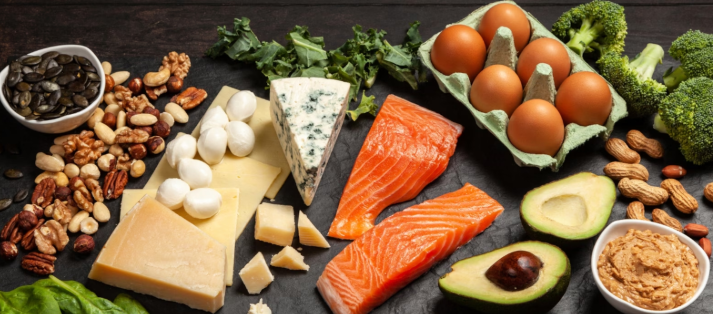A ketogenic diet — a very low-carbohydrate, high-fat eating plan called a keto diet for short — was able to lessen the severity of multiple sclerosis (MS) in mouse models by modulating the activity of gut bacteria and their metabolites, a new study shows.
The findings suggest that molecules made by gut bacteria are key for the beneficial effects of this type of diet in MS models, implying that supplements of these bacterial-made molecules might be a useful strategy for treating MS in people.
“What was really exciting was finding that we could protect these mice from inflammatory disease just by putting them on a diet that we supplemented with these compounds,” Peter Turnbaugh, PhD, co-author of the study at the University of California, San Francisco, said in a university news story.
The study noted that “if this finding holds in humans, [such] supplementation alone could offer a viable therapeutic alternative.”
Titled “A diet-dependent host metabolite shapes the gut microbiota to protect from autoimmunity,” the study was published in the journal Cell Reports.

Molecules made by gut bacteria key to beneficial effects of keto diet
Diet can have profound effects on health for all people, but especially those with autoimmune diseases like MS and other conditions. A ketogenic, or keto, diet involves minimizing the intake of carbohydrates, which forces the body to burn fat for energy. The diet gets its name because, when the body is using fats as its main source of energy, it makes molecules called ketone bodies.
There isn’t any one diet recommended for people with MS, although the keto diet is one dietary strategy that is sometimes explored by people with the disease. Some small studies have indicated that this eating plan may help to ease fatigue and depression, and experimental evidence also suggests that a keto diet can lessen disease severity in animal models of MS.
However, it hasn’t been clear why exactly this type of diet shows benefits in MS models.
In this study, the researchers wanted to determine whether the impact of a keto diet in MS models is dependent on the gut microbiome — the billions of bacteria and other microorganisms that live in the intestinal tract.
In their initial experiments, the researchers induced experimental autoimmune encephalomyelitis, or EAE, an MS-like disease, in mice, then fed the animals either a high-fat diet or a ketogenic one. In line with prior research, mice given the ketogenic diet had much less severe disease.
The researchers then repeated the experiment using germ-free mice that were engineered to completely lack a gut microbiome. Contrasting with the original findings, disease severity was comparable in germ-free mice fed a ketogenic or high-fat diet, illustrating that the impact of the ketogenic diet in this model is dependent on gut bacteria.
When mice are fed a ketogenic diet, a ketone body called beta-hydroxybutyrate, or BHB, is significantly increased in circulation relative to the high-fat diet. This molecule is known to modulate the activity of inflammatory immune cells, so the researchers speculated that reduced production of BHB in germ-free mice might explain why these mice didn’t benefit from the keto diet.
Supporting this idea, the researchers found that supplementing the mice’s high-fat diet with BHB led to less severe disease — similar to that seen with the keto diet.
“We discovered that oral delivery of a [BHB] can mimic the protective effects of a [ketogenic diet],” the researchers wrote. “The translational implications [from animals to humans] are profound, as [ketogenic diets] are difficult to maintain and can have negative side effects.”

Researchers say ‘big question now’ is translating findings to humans
In further experiments, the researchers found that BHB leads to an increased abundance of gut bacteria, which can produce an anti-inflammatory compound called indole-3-lactate (ILA).
When EAE mice fed a high-fat diet were treated with either those bacteria or ILA, disease severity was also much lower — and the mice had a higher likelihood of surviving through day 18 compared with untreated controls.
Studies in humans have shown that people with MS tend to have abnormally low levels of ILA, suggesting a potential mechanism for how these diet-mediated changes in gut bacteria impact disease.
I think these results provide hope for the development of a more tolerable alternative to helping [MS patients] than asking them [to] stick to a challenging and restrictive diet.
“The pathway we have identified herein provides a common mechanism through which these diverse dietary interventions may impact MS,” the researchers wrote, noting that these findings set the stage for further experiments to examine the potential of BHB and/or ILA supplements as a strategy for MS treatment.
According to Turnbaugh, “the big question now is how much of this will translate into actual patients. … I think these results provide hope for the development of a more tolerable alternative to helping [patients] than asking them [to] stick to a challenging and restrictive diet.”



